In this blog post, we will be exploring the intuitive eating principles & how to reject the diet mentality plus answering reader questions about whether or not intuitive eating is for everyone.
If you’ve been following along in this intuitive eating principles learning journey, I kicked things off by discussing what the intuitive eating principles are, what HAES (Health at Every Size) entails, and the non-diet movement. It has 10 important principles that build upon each other and we’re going to be going through them all one by one in this blog and YouTube series.
Before I start, I want to be clear that I am not a HAES expert and am not the best representative to speak on behalf of people in larger bodies. I’m still learning a lot about this topic myself so together we can work towards a more accepting, diet-free culture.
I also want to flag that this intuitive eating principles content may not be for all of my followers right now. Everyone is welcome to learn how to be more intuitive in their eating. I am in no way prescribing this way of eating or thinking. I simply want to share what research suggests may help, and what I’ve seen work for a lot of people in practice- including myself. If it’s not for you, right now, know that there’s lots of other great content coming that hopefully is.
So, with that being said, let’s get started!
As part of this series, I wanted to answer a viewer question about intuitive eating principles, HAES or body positivity and associated concepts. Submit yours below because I will be doing this in each of these episodes.
Are Intuitive Eating Principles for Everyone Regardless of Size?

Dear Abbey,
I am “overweight” and my weight is impacting my health. It is very hard on my joints and I also have Diabetes, so of course my doctors all want me to lose weight. Isn’t it irresponsible to be promoting intuitive eating principles and health at every size to people like me who are clearly NOT healthy at my current size?
This is a very common criticism of HAES and intuitive eating principles. Here’s the truth. Weight loss MAY improve some chronic health problems. There’s a lot of correlational research linking weight loss and improved health outcomes, and in some cases, I can’t deny that it won’t play a role. There are even a lot of reasons to suggest that modest weight loss may improve some health outcomes for people living with type 2 Diabetes or at risk of heart disease. It’s virtually impossible to tease weight loss apart from lifestyle behaviours though so we really don’t know the magnitude of these factors. Even with something like joint pain, which seems like a reasonable assumption that weight loss will improve outcomes, we don’t know how much of those improvements are from physical activity vs the weight loss itself. So of course, it’s complicated, and I cannot say for certain that weight is NOT involved as one of MANY factors.
The challenge with the recommendation to just go lose weight, however, is that we know from very strong evidence that restrictive intentional weight loss diets do not work. For the vast majority of the population, any sustained weight loss is next to impossible, and in fact, they often may do more harm than good and cause more weight gain. So some may say this is a bit of a risk and benefit analysis that you have to make with your practitioner and dietitian.
I believe that the goal should be to find a way of eating that you can comfortably and pleasurably sustain for the rest of your life. This is really where intuitive eating principles come into play. Weight is often something we can’t just magically change or fix, but behaviours we can. Behaviours we have control over. So I would rather support someone to find healthful behaviours that feel sustainable because they’re not repressive, then attempt to lose weight, inevitably gain it back, and repeat this cycle their entire lives.
Before we get into it, I want to add that I support you no matter where your journey is. I don’t expect you EVER to give up the pursuit of weight loss if that’s what brings you health and happiness. Also, I don’t want to put weight limitations on who can and cannot pursue intuitive eating principles. I just know what the science says about restrictive fad diets in the long term and I will always think the better way to approach health is through behaviour modification. Think of weight changes as a side effect.
Okay now let’s get into the meat and potatoes of this lesson.
How to Reject the Diet Mentality
The idea of rejecting the diet mentality is principal one of Elyse Resch and Evelyn Tribole’s book, Intuitive Eating. I highly recommend getting the book and you can do so in my amazon affiliate store here.
Diet culture is all around us and has affected virtually everyone at some point in their lives. Your hair dresser is talking about Keto. Your mom is trying to cut back on carbs. Every influencer on Instagram is touting the benefits of intermittent fasting. And now even kids are not safe (see my post about the WW Kurbo app for kids). My point is, no matter where you look, diet culture is right up in your business.
It’s really no wonder that upwards of 50% of US adults try to diet and lose weight every year. And trust me, the weight loss industry takes full advantage of this with keto fat bombs, whole 30 branded snacks, and weight watchers points on packaging. We’re spending more money, on fewer calories every day.
But like I said, restrictive weight loss diets rarely actually “work”.
Up to 95% of people that go on a diet “fail”, or more realistically, their diet fail THEM. Diets aren’t designed for long-term success and they’re rarely designed to help you make useful, long-term behaviour changes. Instead, they’re focused on an endless cycle of diet, weight loss, rebound, weight gain, and repeat, also known as the Dieter’s Dilemma. You want to be thin, you diet, you begin to crave “forbidden” foods, you eventually “cave” into your cravings, you regain the weight you lost, and you’re back to feeling like shit and wanting to be thin again. These companies know that their diet plans are faulty, that’s literally built into their business model. And it’s a really good model.
But if you actually look at the research, the majority of people on diets rebound in weight and sometimes gain even more thanks to the impact on their metabolism, and their relationship with food..
I’m not saying this to discourage, but I do want to point out why this frame of mind isn’t working. Wanting to lose weight is fine, and normal, and I support you here, but coming at it from a diet culture framework just doesn’t work.
So, what should we do? Ditch the diet mentality. And that takes us into principle 1 of Intuitive eating.
How to Start to Ditch the Diet Mentality
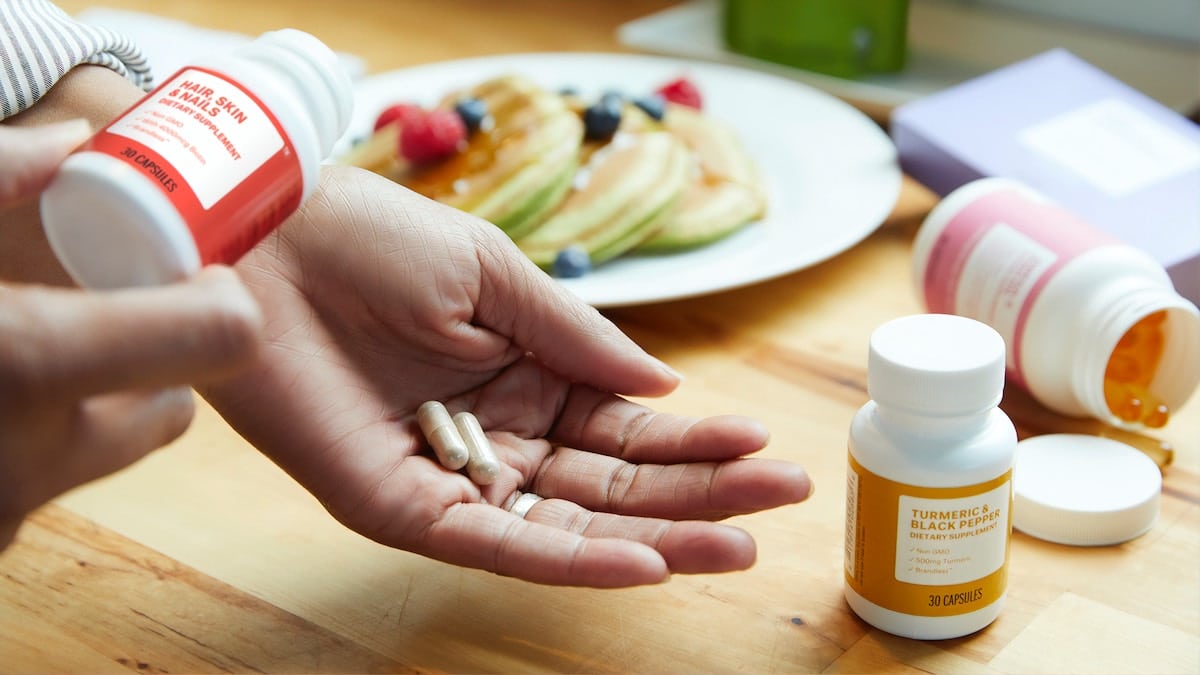
First and foremost, one of the most important things to remember is that your happiness and health are not correlated to the size of your body. Being smaller doesn’t necessarily mean you’re healthier and being larger doesn’t necessarily mean you’re less healthy. Research tells us that our behaviours are better correlated with health than our weight.
To start to ditch the diet mentality, there are 4 main steps you can take.
Step 1: Recognize and acknowledge the damage that dieting causes
Sometimes it’s hard to see the potential damage of dieting when the diet industry has rebranded itself to be about health. In today’s age, diet has become a bad word, and has been replaced with the virtuous persuit of wellness or clean eating. Do not be fooled. This is the same restrictive shit that forces us to distrust our bodies needs, repackaged with a shiny new bow. No matter what we call them, restrictive weight loss diets rarely promote good health.
First there’s the physical harms of chronic dieting including:
- More intense binges and cravings
- Increase risk of premature death and heart disease
- Research tells us that those who weight cycle or “yo-yo” diet have an increased risk of death and/or heart disease compared to those who didn’t diet regardless of their body size
- Decreased satiety cues
- Slower metabolism
- Changing body composition with increases in belly fat as a result of yo-yo dieting
- When a person goes up and down in weight, they tend to regain it in their stomach area, even if that’s not where they stored it before.
Of course there are also the psychological harms including:
- Increased risk of disordered eating
- Increased stress and anxiety
- Vulnerable to loss of control surrounding “forbidden” foods
- Decreased self-confidence
- Belief that weight gain is associated with a flaw in one’s character
If someone were to read these side effects out to you in a drug pamphlet you would absolutely refuse to take it. But yet, we pay the diet industry A LOT OF MONEY to try it.
Step 2: Become aware of diet mentality language and thoughts
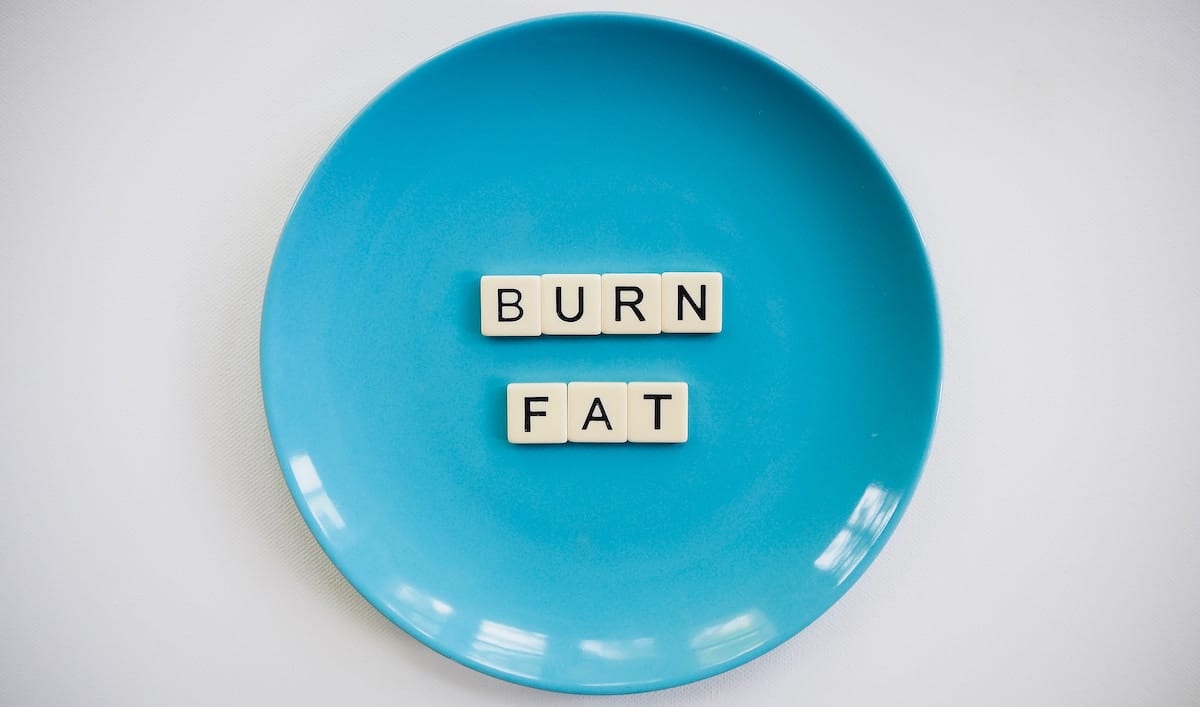
Remember that diet culture is everywhere and its so pervasive we often don’t even see it there.
But start to really take the time to pay attention to words, thoughts and behaviours. When you approach eating, exercise, or any other lifestyle habit, you’re going to want to approach it gently and with compassion for yourself. Thinking about eating in terms of “willpower”, “discipline”, and “self-control” may sound innocent and virtuous, but using these terms often reemphasize diet mentality. Thinking you must have self-control in order to succeed is essentially a diet in disguise. Think to yourself: “Why do I feel I need to have self-control over eating? What is it that makes me feel that I can’t have certain foods?”
When you try to have self-control and you “fail” because you ate a donut, you’re characterizing yourself as a failure for simply enjoying delicious food. The foods we eat or don’t eat do not define our character or self-worth. While diet culture may try to convince you otherwise, you can be the nicest person on earth and never eat a salad and you can also be the worst person on earth and drink kale smoothies every day. Trust me, I know a lot of these people.
Another thing to keep in mind is the idea of obedience. The thing about diets is that they provide a strict list of rules and list of foods to avoid. Naturally, just like any person, if someone tells us we can’t do something, we’re way more likely to do it out of pure rebellion. And sure, you’re probably going to be able to follow the rules for some time, but naturally, you’re eventually going to rebel against them and likely overdo it.
One of the big problems with diets is that they notoriously generalize people. They assume that everyone is hungry at the same time, likes eating the same amount of food, and enjoys the same tastes and flavours. But actually, we are all different. Some people are hungry first thing in the morning while others can’t stand the thought of eating as soon as they wake up. Some people like having large meals while others may want smaller, more frequent meals. My husband and I fit those dichotomy and we eat under the same roof. But by assuming we’re all the same, diets inherently fail us. So, trying to “obey” rules that aren’t designed for you makes it really easy to fight them when they inevitably don’t work for us.
And what happens when you fight? Well you may feel good at first, but soon comes feelings of shame and guilt. With intuitive eating principles, the goal is to take charge of your life and your decisions. You decide what tastes good. You decide what and when you want to eat based on what your body truly needs. By sitting in the driver’s seat, you’re less likely to rebel against rules that make you feel happy.
What’s great about intuitive eating principles is that you can’t “fail”. Even if a meal or snack doesn’t go so well, or you eat more or less then you think you probably needed. Those experiences are banking really important information that will help help guide your eating as you move forward. It’s a long learning process that naturally changes as your life changes.
Step 3: Get rid of the dieter’s tools
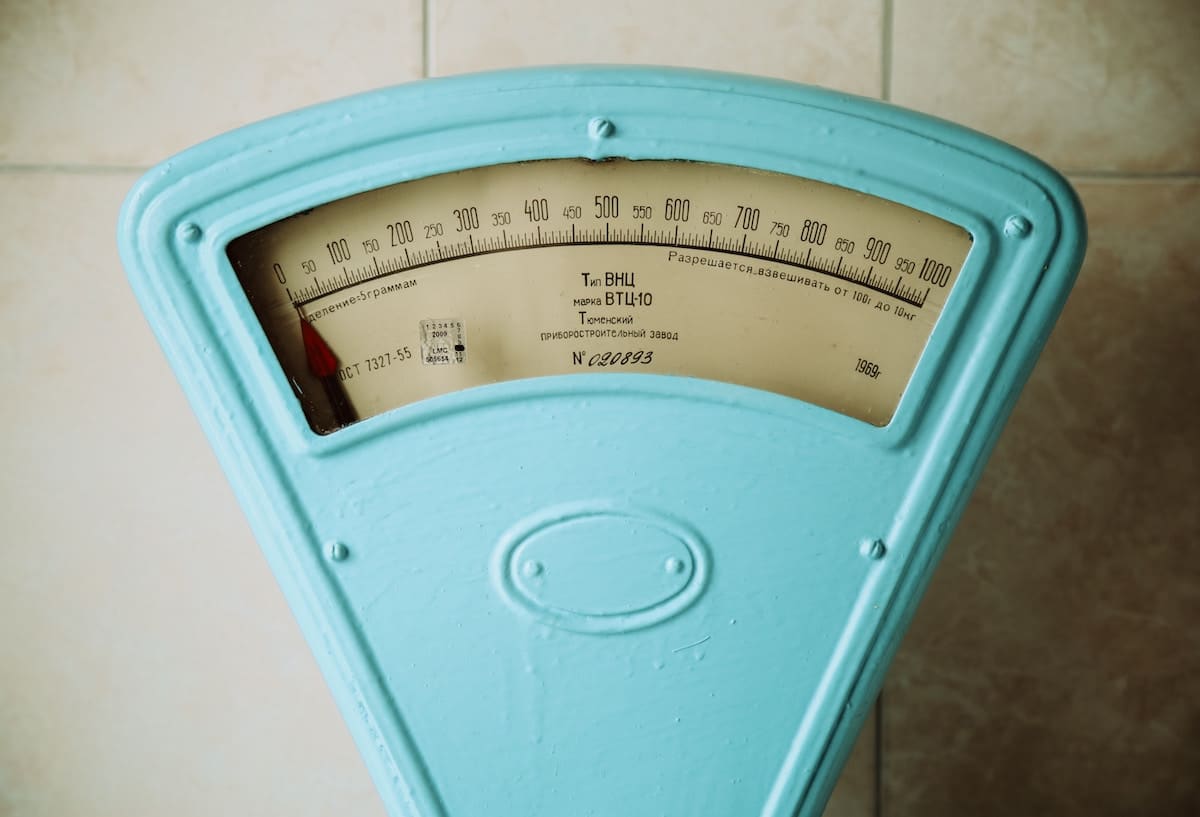
Dieting tools are things that get in the way of real progress in your relationship with food because they blind us from important body cues. They’re used as external validation for doing something “right”. For example, a scale is used to tell a person how much they weigh. If they like the number they see, then the person usually feels a sense of accomplishment. But if they don’t, it reinforces every bad feeling that comes with dieting and pushes self-doubt, low self-esteem, a preoccupation with food and body, and eventually kick starts the diet cycle all over again. I mean, raise your hand if your day has gone well or poorly just because of the number you saw when you hopped on. We’ve all been there.
So in step 3, it’s all about getting rid of these tools, at least for now. Strict meal plans, scales, calorie tracking apps, fitbits, and anything that serves little purpose in your relationship with food should be thrown out.
I want to note that I am open to the possibility that there may be a place for these for certain populations or specific times. In the past, I know I have been critical of calorie counting. I am open to your feedback that it may have helped you learn about nutrition or keep tabs on what foods feel best. I respect that and I am not resisting that possibility. But for the purposes of this exercise, and the intuitive eating process, we need to put this on the back burner. We can revisit it when we get to discussing nutrition as that is also part of the intuitive eating principles, but it needs to be put aside to help us rebuild a relationship with food.
If you still feel weird about temporarily giving these up, I also wanted to share some insights into why these tools aren’t even the best measurements of health.
Why Dieting Tools are Not the Best Measurements of Health
If no longer weighing yourself makes you feel like you will lose tabs on progress, consider that weighing yourself daily is not even that telling. For example, two cups of water equals one pound. So, if you eat some salty chips and start to bloat, you could easily “put on” a few pounds in a single day. Food also has weight, so that’s why you usually weigh more later in the day. Muscle weighs much more than fat, which means if you carry a lot of muscle, you’re going to weigh more.
And what about those diets that cause you to lose 10 pounds in a single week? It’s mostly water weight you’re losing as well as muscle loss. Drinking juice cleanses all week leads to a severe calorie deficit which leads to the body cannibalising muscle to use as energy. When the muscle breaks down, it produces water as a by-product, and we excrete this through our urine. So, any weight you’re losing is usually just water and muscle, which we really don’t want to lose.
As for calorie trackers and apps, they aren’t totally accurate. FitBits and other trackers have been found to overestimate your energy expenditure of the day. What’s more, research is starting to show that these fitness and calorie trackers can be detrimental to your mental health. One research study found an association between use of calorie trackers and eating disorder symptoms, such as anxiety surrounding food and eating.
What’s even more interesting is that they found a higher correlation between fitness trackers and eating disorder symptoms. I’ve even talked about how this impacted my fitness (and it wasn’t for the better). Fitness and calorie trackers are very objective in that they only track what you’ve done. They don’t take into consideration that you’re taking a rest day or it’s your birthday. They also don’t take into consideration your muscle mass and metabolism, which will have a huge effect on your daily energy expenditure and energy needs. All you see is whether you “succeeded” or “failed”, which is arbitrary at best, and counterproductive at worst.
So to summarize, I’m not saying you should never hop on a scale again if that feels empowering to you. I’m also not saying you can’t hope that the intuitive eating principles will help you lose weight. I’m just suggesting for this process to work, and it’s a process, the weight loss tools need to be put aside so we can regain our relationship with ourselves and food.
Step 4: Be compassionate to yourself

The final step of principle 1 is to be nicer to yourself.
As you go through the intuitive eating principles and really learn how to live life diet-free, you’re going to be tempted and pulled back into diet culture. Remember, it’s everywhere!
So, if you’re scrolling through Instagram and feel like you need to get on a diet, don’t beat yourself up about it. Take a second to think about why a photo or program incited this thought.
Also think about if you’re ready to put the restrictive diets on the back burner right now and if that is the best think you can do for your own physical and mental health. Remember, no judgement, we all have to come into this when we’re ready.
Learning to eat intuitively takes time and patience. You’re going to feel like you have set backs, but again, take these set backs as learning opportunities rather than failures.
If you’re having trouble wondering if you’re following diet mentality, here are some useful comparisons from the Intuitive Eating book that I wanted to share.
For eating and food choices, diet talk sounds like this:
- Do I deserve it?
- Eating that is going to make me feel bad.
- That food is bad for me.
- That food is good for me.
- I’m eating clean.
In comparison, non-diet talk sounds like this:
- Am I hungry?
- Do I want to eat that? Am I in the mood for it?
- Will I be deprived if I don’t have?
- Will it taste good?
- I deserve to enjoy eating food without feeling any guilt
When it comes to exercise, diet talk sounds like this:
- I want to burn as many calories as possible
- If I miss a workout, I feel bad
- If I work out for another hour, then I can work off that donut I ate earlier
Comparatively, non-diet talk sounds like this:
- Exercising makes me feel happy
- I feel strong and energized after my workouts
- I’m less stressed after working out
Your Intuitive Eating Exercise

Go through the people you subscribe to or follow and flag or pay extra attention to diet mentality language. Words like “clean” or “good and bad” food comparisons or “earning” meals, or “cheat days”. Start to really tune into this language and ask yourself how it feels to see this now that you’re trying to think more morally neutral about food. If it doesn’t feel like it works for you anymore, unfollow or unsubscribe. Fill your feed with people who have more supportive relationships with food.
Remember that eating intuitively is about respecting your body’s natural signals and desires. This concept does fall short on acknowledging how trauma may impact our ability to feel safe and connected to our body. If this is an issue for you, it may be a good idea to seek support from a licensed therapist. In the meanwhile, I’ll be continuing this series and return with Principle 2: Honour Your Hunger so stay tuned.
Become an Abbey’s Kitchen Subscriber
Become an Abbey’s Kitchen Subscriber
What are some of your questions as it pertains to intuitive or mindful eating?
Leave me a comment below!
Contribution by Katey Davidson, RD

Abbey Sharp is a Registered Dietitian (RD), regulated by the Ontario College of Dietitians. She is a mom, YouTuber, Blogger, award winning cookbook author, media coach specializing in food and nutrition influencers, and a frequent contributor to national publications like Healthline and on national broadcast TV shows.
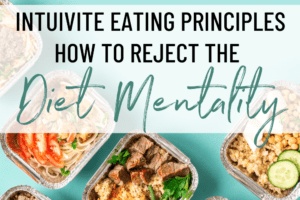
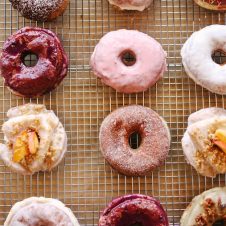
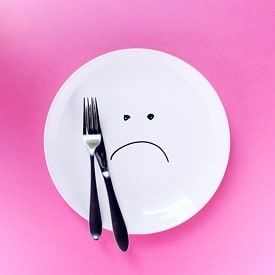


Laura Lisbeth says
Hi Abbey-I recently discovered your YouTube channel. I was so excited to hear someone talk about eating in a beneficial, REAL way. I have tried keto, Atkins, and intermittent fasting. But my body keeps telling me that it is hungry, and right around the time I had decided I needed to start listening to it – – I discovered you. So thank you for what you do, please keep it up. I do find it rather ironic that this blog was rife with ads about eating.